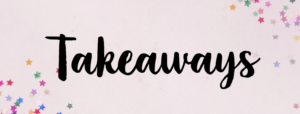Before we jump into the blog post, I want to quickly let you know that I’m currently accepting new one-on-one coaching clients who want a little extra guidance with changing their productivity habits. You can read more about my coaching practice here and book a session here. You can also download a FREE guide to habit formation and maintenance by subscribing to The Tending Letter in the pink box below this post. Thanks for your time, and enjoy the blog post!
I love mantras.
They help me manifest structure from whence there was none by blending principles with guidance and still leaving breathing room for interpretation.
In addition to my 2019 theme word (garden), I’m using guide mantras this year. So far, they include “art every day,” “ask more questions and truly listen to the answers,” and “less is best.” I chose this last one because I tend to take on too many responsibilities and set unrealistic expectations for what I think I should do, when in reality it is perfectly okay, and actually better, for me to do less.
I decided to make a series of posts sharing some of my “do less” methods with you. I’m calling it the Less is Best Series, or LIBS.
LIBS will teach you how to recognize and value your personal resources, shift your perspective around your output, and work intentionally to do tasks well, all without feeling overwhelmed.
I will literally put my money where my mouth is—or, rather, my resources where my output is—and break down just one topic per LIBS post. I use every one of the tools I’ll teach you in LIBS, so you know they work. I’ll explore topics such as diminishing returns (this post!), batching, and monotasking. LIBS posts will pop up now and then throughout the year, as small yet comprehensive guides to help you tackle overwhelm, build habits, and achieve more while doing less.
Diminishing Returns
You may have heard the phrase “diminishing returns” before in relation to economics. It is defined as “a rate of yield that beyond a certain point fails to increase in proportion to additional investments of labor or capital.” For our purposes, it means seeing less rewards when we over-expend our resources of time, energy, focus, motivation, etc.
I’m not talking about a healthy challenge to one’s limits, like when my yoga instructor asks me to give her two more reps of a leg lift even when my muscles are shaking like my dog’s tiny chihuahua body when she hears thunder. That healthy method of extending my comfort zone will ultimately help me to strengthen my body in incremental ways, and even though it works my physical resource to the extreme, I can easily recharge that resource because I haven’t spent it all.
When I talk about diminishing returns, I mean when we make the intentional choice to over-expend our resources to the point where it causes more harm than good.
Why would we do this?
We are busy people, fueled by excitement, goals, deadlines, and limited resources of time, energy, focus, and motivation. While it make sense to want to continually achieve optimal output, it is difficult, impractical, and harmful to push ourselves to work when our resources are spent. That being said, there are a number of reasons why we push ourselves beyond our Threshold of Diminishing Returns (henceforth TODR). I’ll break down three below.
Unrealistic expectations
I love compliments (hi, I’m a Libra Sun, nice to meet you), but it took a lot of work for me to be able to receive compliments on my work output. I viewed completing a work task as the right thing to do, regardless if it required me to push myself past my TODR. Hearing “good job on your presentation!” landed akin to someone saying “good job at chewing your food sufficiently before you swallowed!” Of course I was going to do a good job on my presentation or meet a deadline or work a ten-hour day. To not do so felt like failure, and failure wasn’t an option.
Falsely believing that TODRs are objective and stagnant
Your TODR will not always look like someone else’s. Nor will it look the same to you at all times. My personal TODR shifts day to day, mostly due to chronic physical pain, and sometimes due to mental illness. I might have all the intention to easily kick ass on a task and have time left over to wash the dishes, too, but a surprise twisted sacrum or a Complex-PTSD flashback means that I will hit my TODR quicker than I would on a day where I feel relatively pain free and feel emotionally grounded.
The Planning Fallacy
The Planning Fallacy happens when we underestimate how long a particular task will take us to complete. We do this because we feel optimistic and are biased that we ourselves can complete a task in a short time frame. This could be because we forget to factor in how long it will take us to complete non-project related tasks (cooking, commuting, cleaning, resting, etc.) or because we forget that history proves we sometimes need longer time to complete similar tasks. For example, when I started my areas (comprehensive exams), I told my friends “I’ll have this done in a few weeks.” All I had to do was read 60 texts and write two 15 page papers—I was used to writing 15 page final papers over a weekend and I had regularly read 10 texts in a week for graduate courses. How different could reading for areas be? The answer: a lot. I ended up spending about a year researching, writing, and revising my area papers, and that was before I developed chronic pain.

How to Respect your TODR
Wait a beat and check in with your resources before you set a deadline.
I used to struggle with this when people would give me tasks to do without a set deadline. I would choose arbitrary, too-soon deadlines (“I’ll get this to you by the end of the day”) and then work myself past my TODR to meet them or ask for an extension with my tail between my legs. I could easily have said “I’ll have this to you in 3 days” and received a genuine “sounds great!”—but I set way too early of a deadline because I wanted it to be true.
Wait a beat and check in with your resources before you take on something new.
If at all possible, say “Let me get back to you” before you agree to taking on something that will utilize your resources. Take some time to consider if doing that favor/going to that free concert/writing that article is worth the resource expenditure it will require. Ask a friend or partner for their opinion if you can’t decide.
Newsletter
Sign up below to access my free newsletter, Tending with Dr. Kate Henry.

